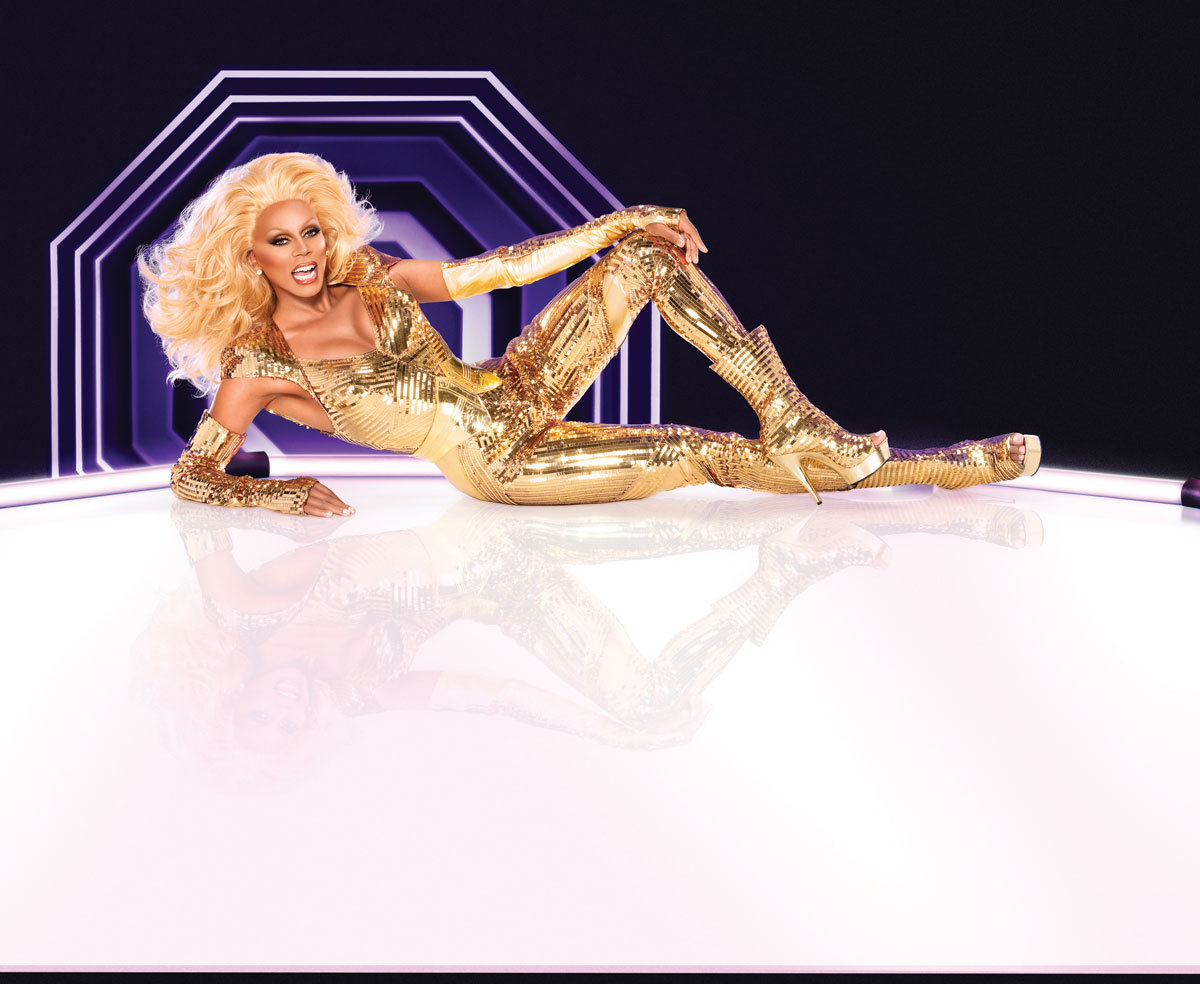After years of illegally streaming RuPaul’s Drag Race (Ru acknowledges this too!), Brits can now legit watch the show from Season 4 onwards on truTV starting this Monday, June 1. Drag Race is the show that brought the drag queen back into the primetime limelight when it launched on LGBTQ channel Logo in 2009, and it’s since made niche household names of Sharon Needles, Jujubee and Bianca Del Rio. Despite weathering a transphobia storm over its use of the words “tranny” and “she-mail”, Drag Race has undoubtedly been a force of good, showcasing the humor and the humanity of its ensemble cast. Whilst she was in town to select her UK Ambassador, we caught up with Ru to get her take on all the drag types.
Why are you skipping straight to season 4?
I think it’s a great place to start because it shows so many different genres of drag. When we started RuPaul’s Drag Race, we had to set the standard for an audience who may not have been familiar with drag. So we started with the fundamentals and chose characters who were the basis of drag culture. And then as the years have gone on, we’ve added more eccentric characters. I think season 4 is the first time we introduced gender fuck drag.
Tell us about gender fuck.
I grew up watching Monty Python’s Flying Circus, and it was more of a political punk rock f-you. When I started with drag – and you can still see pictures of me this way on YouTube – I had smeared lipstick and combat boots and torn wedding dresses, like “F-you!” That’s gender fuck.
On the show, you’ve got the big city types – the LA and the New York drag queens – and then you’ve the kind of country ones. As the overseer of everything, do you notice differences like these?
No it’s important – the show is put together as an ensemble cast. It’s important for us to represent all the different genres of drag. We have the comedy queen, the pageant queen, the ingénue, the city girl and the country girl. Not only is it important to watch these different characters put into this situation, but it’s also important for the audience to be able to root for someone that they love. The core of our show is watching the tenacity of the human spirit. And so these courageous characters who come from all walks of life have overcome so much adversity from their families, their neighborhoods, society. The audience can root for them, because the audience has also had dreams.
What about the different regions?
Different regions have different drags: a lot of the beauty pageant girls happen to be from the southern part of the United States. And they’re very perfect. With New York queens, there’s a certain acidity and a certain roughness to them, which is fun. And then even the San Francisco queens, there’s a certain political angle to them that is very different. It all makes for a great show.
What do you make of London drag?
Here in London, the drag has always been sort of a wink-wink, a take the piss out of culture thing, which I love. It’s very irreverent.
Where do you think RuPaul sits in the drag pantheon?
Well I’ve done it all. I started out sort of punk rock irreverent gender fuck drag. And that was so much fun. And then it evolved because I needed to make more money and the landscape changed for me – I moved from Atlanta to New York. I started doing a look, which I like to call “street walker”. And that was where I dressed like a Soul Train dancer. Mini skirts and you know, kinda like a prostitute, which was so…much…fun! It was the most fun I ever had in drag. And then as I went mainstream and got a record deal I knew that I had to appeal to a wider audience, so I changed it to my glamazon drag. And I’ve stuck with that since I’ve been famous.
How do you define the drag scene today? What new movement is there?
The biggest movement in the drag scene today is RuPaul’s Drag Race! It’s changed everything. With season 7 of RuPaul’s Drag Race all the children were born of the RuPaul’s Drag Race generation. So that’s the biggest thing. My girls – and I think there are about 95 of them now – are the only ones who are making the real money now and getting the bookings. So I think that’s the biggest change.
Can you pick a favorite?
No no, they’re my children! I have favorites, but I could never say them.
Every season, the level of judges just keeps going up. You’ve had Ariana Grande this year.
I think people understand that this is an important movement. Everyone in show business thinks of themselves as a drag person anyway, because they know that the person they are on stage is very different from the person they are at home. And I think they know it’s a fun show, and it also makes them look really cool.
Khloe Kardashian came off well.
She was on twice! She’s a great gal. She’s smart, and she gets it. She really does.
What’s your latest catchphrase?
I have a million! On my record, Realness, I have a song called Step It Up and I say “Gurrrrrl, you better step your pussy up!”
